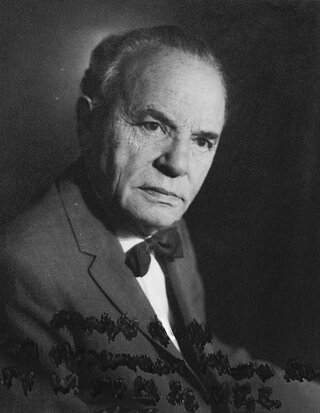Jacob Robinson
Jacob Robinson (1889–1977) fought for the universal validity of human rights and for inscribing minority protection into international law.

Prior to World War I, Robinson studied Law in Warsaw. In 1922, Robinson was elected into the Lithuanian parliament as a Jewish representative. Later on, he became a delegate to the Congress of European Nationalities in Geneva. In 1940, Robinson fled to New York. There he was active in rebuilding the Jewish Scientific Institute (YIVO), initially founded in Vilna. Robinson headed the Institute of Jewish Affairs, which collected and dispersed information about the state of affairs for Jews in Europe.

In 1945, he supported US Chief-Prosecutor Robert Jackson during the Nuremberg trials. Robinson also prepared the UN Commission on Human Rights. Additionally, he advised the Israeli delegation to the UN. In 1952, Robinson provided his services in drafting the Luxemburg agreement, the first reparation treaty between Israel, the Jewish Claims Commission (JCC) and Germany. Robinson coordinated the efforts of various Jewish organizations that took legal actions against the perpetrators of the Holocaust. His legal expertise was instrumental in the trial of Adolf Eichmann in 1961/62.
Robinson authored numerous studies on international law and the Holocaust. In 1960, together with Philip Friedman, he published the extensive bibliography Guide to Jewish Histor y Under Nazi Impact.

